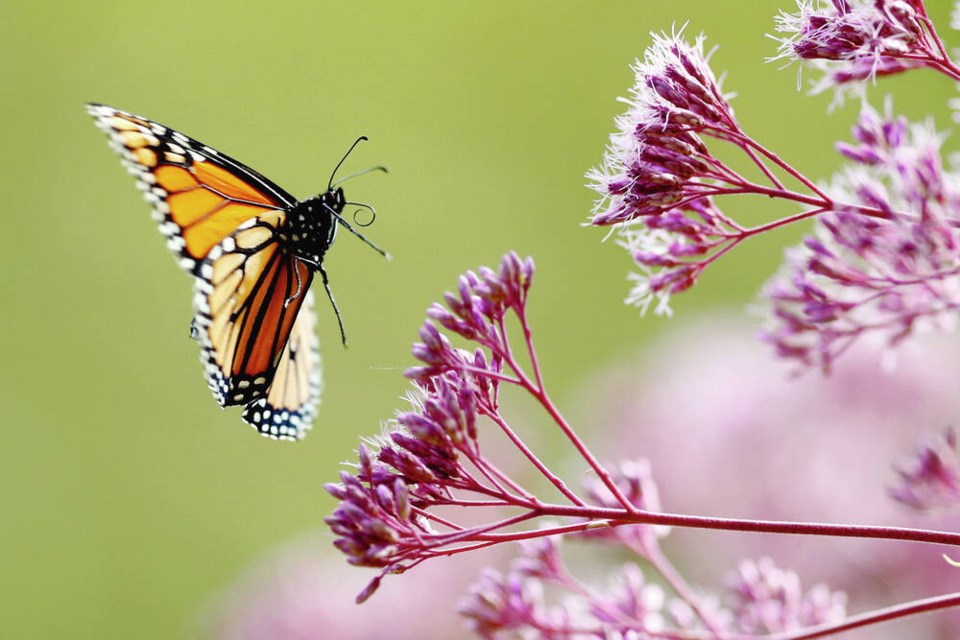There was a lot of attention paid in the recent election campaign to the provincial deficit, by which various politicians and commentators meant the budgetary deficit.
But important though that might be, there is another deficit that is much more concerning, and yet largely ignored: our natural capital deficit.
Natural capital was defined at a World Forum on Natural Capital in 2017 as “the world’s stocks of natural assets which include geology, soil, air, water and all living things.”
Natural capital, it was explained, is the source of a wide range of ecosystem services that are essential for humanity, including in particular “the food we eat, the water we drink and the plant materials we use for fuel, building materials and medicines.”
Other vital ecosystem services include carbon storage in plants, oxygen generation by phytoplankton in the oceans, pollination of our crops and of plants in general, and protection against flooding provided by forests.
So, important though climate change is, the loss of biodiversity and the impairment of ecosystem functions is at least as important.
But because its effects are not “eminently visible … immediate … measurable and easy to understand,” the World Economic Forum noted in June, the loss of nature does not get the level of attention it deserves.
Yet its impacts are vast. In a November 2023 article based on interviews with leading experts around the world, The Guardian reported that if we carry on as we are, these ecological changes “will result in major shocks to food supplies and safe water, the disappearance of unique species and the loss of landscapes central to human culture and leisure by the middle of this century.”
This also has massive economic consequences. The World Economic Forum noted in a 2020 report that “$44 trillion of economic value generation — over half the world’s total GDP — is moderately or highly dependent on nature and its services.”
The World Bank concurs, finding in a 2021 report that “if certain ecosystem services collapse (pollination, carbon sequestration and storage, fisheries and timber provision)” then by 2030 alone, “the global economy could lose US $2.7 trillion.”
In a 2023 article on “Earth Overshoot Day” — Aug. 2 that year, the day on which humanity’s ecological footprint exceeds the equivalent of one Earth’s worth of bio-capacity production — Jack Dempsey, a fund manager at Schroders, a large global investment manager, succinctly summed up what it means to have a global ecological footprint of almost two Earths: “This creates a deficit — the only way we can maintain this deficit is by permanently depleting Earth’s stock of natural capital, i.e. going into debt in financial terms.”
The issue of our natural capital deficit is, in effect, the focus of the 16th Conference of the Parties (COP) to the UN Convention on Biological Diversity, which convened this past week in Cali, Colombia.
The Convention is the international legal instrument for “the conservation of biological diversity, the sustainable use of its components and the fair and equitable sharing of the benefits arising out of the utilization of genetic resources.” As of May it has been ratified by 196 nations, one of which is Canada.
But in reality, we are decimating biological diversity and using natural resources unsustainably and in ways that are inequitable. As the World Bank stated earlier this year, “nature and the associated renewable natural capital is in decline, despite being the most precious asset that many countries have to tackle climate change, end poverty, improve resilience, and ensure sustainability.”
The solution advocated by the World Bank, World Economic Forum and others is to “bring nature into the center of economic decision-making.”
But while that approach has merit — it’s certainly better than just ignoring it, as we have done for a couple of hundred years — it is not a sufficient response.
Because nature is not just an economic asset, to be used wisely. A 2018 report from the International Institute for Sustainable Development distinguished “market natural assets” — the resources we extract and use — from ecosystem services that are vital to life and thus “are, effectively, priceless.”
And to this we should add the economically uncountable role that nature plays in human culture, leisure and spirituality.
Dr. Trevor Hancock is a retired professor and senior scholar at the University of Victoria’s School of Public Health and Social Policy
>>> To comment on this article, write a letter to the editor: [email protected]



